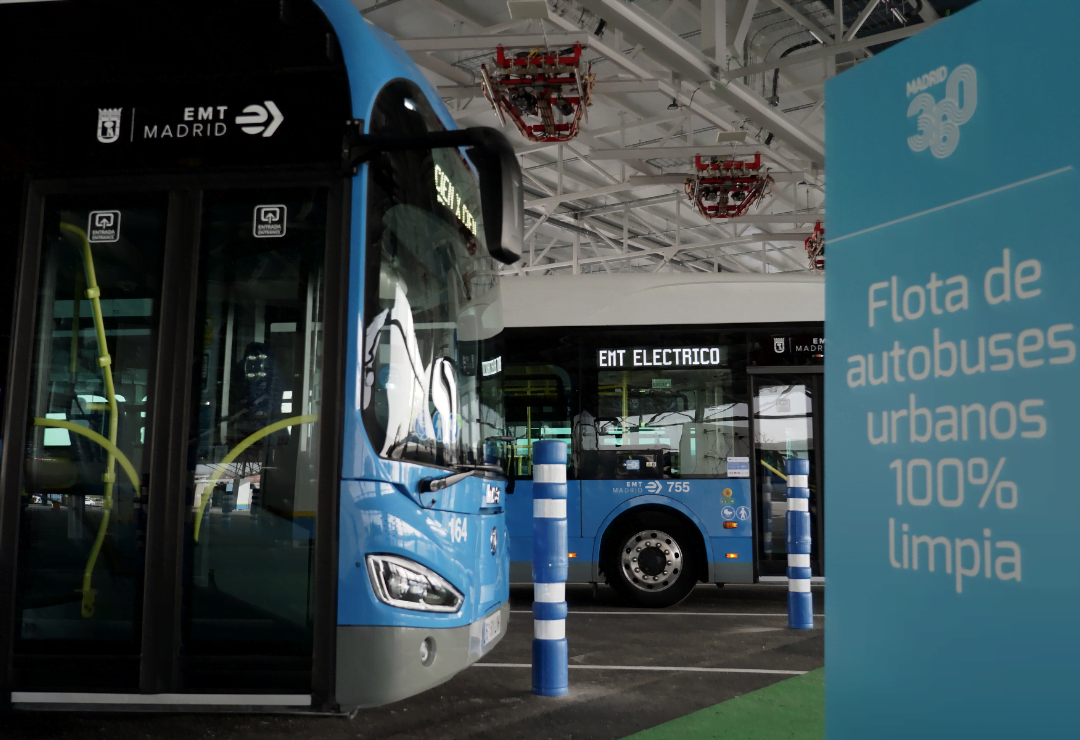EMT Madrid unveils new state-of-the-art electrification infrastructure
Madrid just keeps on going! Last month, Madrid and EMT Madrid presented the city's new state-of-the-art infrastructure of 52 inverted pantograph charging points at its bus depot in Carabanchel.
On 22 February, the Mayor of Madrid along with the Environment and Mobility Councillor and EMT Madrid’s General Manager presented the city’s new state-of-the-art infrastructure of 52 inverted pantograph charging points at its bus depot in Carabanchel. This news is just the latest addition to some of the city's remarkable achievements in sustainable mobility when Madrid opened the year by becoming the first major European city with a 100% clean bus fleet.
Indeed, the Mayor restated the government's commitment "to public transport as an essential axis of mobility and to ensure that it is sustainable", by implementing further measures such as the creation of permanent free public transport lines, "double zero" lines (with zero emissions and zero costs), new network lines, the incorporation of new drivers, and the increase in the budget and the assumption of commitments in terms of electrification.
Carabanchel's charging points as a benchmark for sustainable infrastructure
The infrastructure presented at the Carabanchel bus depot consists of 52 inverted pantograph charging points and a powerful photovoltaic installation that will guarantee the supply of 10% of the charging station's energy for the management of a constantly growing fleet of electric buses.
These new intelligent electric recharging systems allow buses to be charged without operator intervention or waiting time for the driver. Moreover, the system is designed to charge each vehicle in the most versatile way possible, without affecting battery life and optimising the costs associated with the entire operation. The pantographs, connected by wifi with the vehicles, work at a power of 100 kW, which means that the maximum charging time for each bus is between two and three hours.
The total investment for the installation of the pantograph charging points jetty plus the installation of the photovoltaic plant amounts to more than 5.5 million euros, 90% of which is financed by the Next Generation EU funds. This contribution is part of the Recovery, Transformation and Resilience Plan, specifically in the call for applications for the programme of aid to municipalities for the implementation of low-emission zones and the digital and sustainable transformation of urban transport.
Between now and 2025, the municipal company will continue to comply with the strategic environmental requirements established by the EU, while continuing its process of decarbonising the surface public transport network in Madrid in line with the Madrid 360 strategy.
For more information, read the full press release at this link.

